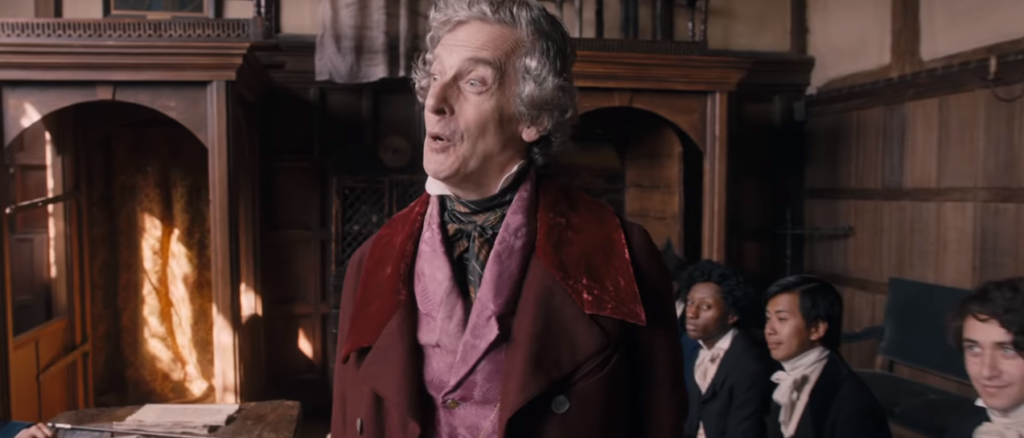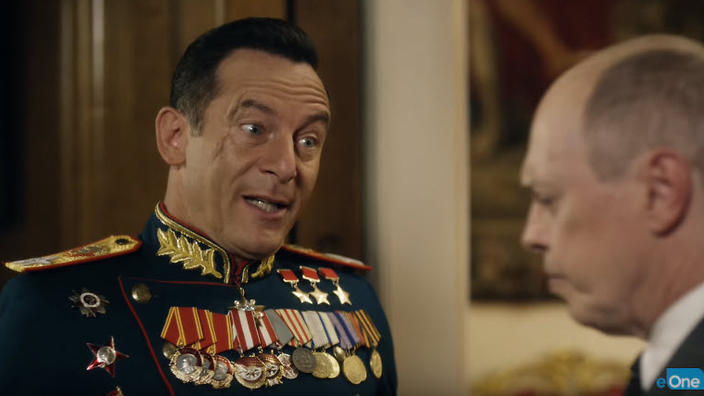
Here’s an unexpected treat: Amando Ianucci’s vivid and brilliantly constructed The Personal History of David Copperfield. Unexpected because I’ve never warmed to the work of Charles Dickins or to any Dickins movies (except for the 1951 A Christmas Carol with Alistair Sim).
Of course David Copperfield IS a storyteller and Ianucci uses the device of David’s storytelling to frame the tale as David remembers it and as his readers and listeners imagine it in their own minds. Ianucci makes the highs in David’s life so vibrant and the lows so piercing, that the total package is a dazzling delight.
Dev Patel, he of the instantaneous appeal and the gleaming smile, is perfect as the quick-witted and charming David Copperfield. Patel’s David suffers grievance after grievance, just waiting for a moment of good luck when he can control his destiny.
That the talented David Copperfield, because of his station, cannot control his destiny in the class-constricted Victorian society is the whole point of David Copperfield, social criticism which Dickins keeps from stridency with his humor.
That’s prime territory for Armando Ianucci. Ianucci is a master of wickedly funny political satire, having directed In The Loop and Death of Stalin and created the television series Veep. (In case you want to know what I do on my day job, I am basically Malcom Tucker in In the Loop, whom you can find on YouTube.) Ianucci’s production designer, Cristina Casali, deserves a shout-out, too.

It’s a wonderful cast, including Tilda Swinton and Hugh Laurie. The standouts are:
- Laurie as the addled, but dignified, Mr. Dick.
- Ben Whishaw as one of literature’s most distinctive villains, Uriah Heep.
- Peter Capaldi (who played the aforementioned Malcom Tucker) as Mr. Micawber, a character modeled after Dickins’ own father.
- Rosalind Eleazer as the even-smarrter-than-David Agnes.
- Morfydd Clark as the sweetly vacant Dora Seamans.
- Bronagh Gallagher (who played one of the backup singers in The Commitments) as the remarkably glass-half-full Mrs. Micawber.
Dickins wrote this story about white people in Victorian England. As is obvious with the casting of Patel as David, The Personal History of David Copperfield has an interracial cast, based on a premise that any actor can play any role. I’m okay with that, and I think as more directors cast their movies this way, the distracting aspects will evaporate for most viewers.
The Personal History of David Copperfield is streaming on Amazon, Vudu, YouTube and Google Play.

